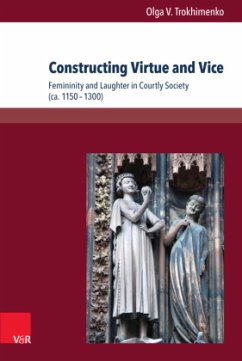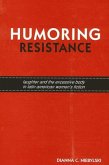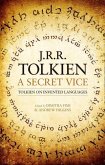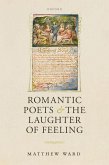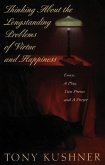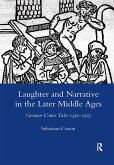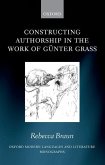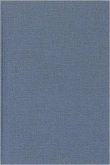The study examines textual representations of women's laughter and smiling and their imagined connection to female virtue in a wide variety of discourses and contexts of the German Middle Ages, including medieval epic, ecclesiastical texts, conduct literature, lyric, and sculpture. By engaging with the competing, and at times contradictory, views of female laughter, it reaffirms a disputatious nature of medieval culture, in which multiple views of femininity, sexuality, and virtue stood in a conflicting, yet productive, dialogue with one another. The society that emerges when one looks at medieval German texts is always ambivalent: it thrives on and enjoys talking about sensuality and eroticism, while being constrained by the conventions of polite behavior and the fear of sin; it relies on the ritual use of laughter, while marking it as a sign of lust and perdition. Women's laughter thus offers an important way into understanding medieval views of gender because it combines physicality with shifting and conflicting cultural norms.
Bitte wählen Sie Ihr Anliegen aus.
Rechnungen
Retourenschein anfordern
Bestellstatus
Storno

